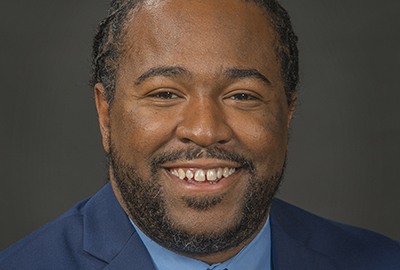Sep 26, 2019 4:34 pm

Charlie Parker joined the college earlier this year, bringing with him a passion and commitment to student success. Parker has enjoyed a broad and varied career supporting equity, diversity and inclusion principles and values.
He earned a Master’s in Public Policy and Management from the University of Missouri, and brings with him 10 years of experience in community development, as a community educator, program coordinator, Title IX and Equity Investigator, Assistant Director of Operations and as an Investigative Analyst.
Prior to joining Pierce College, Parker served as the Manager for Equity, Program Approval and System Development for the State of Washington Professional Educator Standards Board, where he was responsible for leading efforts to diversify the educator workforce and to ensure diversity, equity, inclusion and cultural responsiveness were integrated into the P-12 educator curriculum statewide.
We sat down with Parker to learn more about what attracted him to this work, and to Pierce College as a whole.
What inspired you to apply for this position?
This position really stood out to me because of the language used in the job description. I could tell Pierce College was focused on dismantling systemic barriers and closing equity gaps. It seemed like there was a lot of substance to the job. I also investigated the institution before I even applied, and saw that Pierce has received award after award after award. I could tell there was a winning culture here at Pierce College.
What are some of your biggest goals for the upcoming academic year?
One of my first goals is to build relationships with our different populations within the organization and impress upon them that I exist to serve them. From faculty and staff to students, I’m excited to get to know everyone. I believe in building strong relationships with the people and the causes I serve.
Tell us about your educational journey?
When I was in high school, I had custody of my two younger twin brothers, and worked two jobs while finishing school. I wasn’t the best student because I had so much going on, so I went right into the work force. I worked in IT, and worked my way up into middle management. At the time, I didn’t think college was for me. I wasn’t able to afford it, and I had to provide for my boys. But one day, a recruiter came to me and said I should think about going to school. They encouraged me, and spent time with me talking about the process, and how to fill out a FAFSA. I ended up going to community college, where I found the support I needed to succeed. And there were so many other people at the college who looked like me – even more than in my personal life. I became so attached to my community college that I didn’t even want to graduate and move on. I wanted to stay put because I found such a positive support system there. But my mentor, who was the financial aid director, sat me down and helped me apply to universities. I really wanted to stay in community college a little longer, so my plan was to apply to the hardest school in the state to get into: the University of Missouri in Columbia. I ended up getting in, and begrudgingly left community college for the four-year university.
I didn’t find the same supports there, that I had at my community college. I really had to get focused, but I made it through and finished. I earned a degree in mass media and organizational communication.
What are you most proud of regarding your time at University of Missouri?
I was really active as a senior in college. I started a campus wide communication initiative to help us deal with cultural conflict. I was able to connect with multiple colleges, our athletics department, and administration to get people involved in this conversational dialog that we hosted every week on our campus. It helped people get to know each other and diffuse conflict. After finding success there, the chancellor came to me and said he would like to hire me after I graduated. I was one of the youngest individuals hired into the chancellor’s office at the time.
I worked my way up to become the lead investigator for Title IX and Title VII in our civil rights office. I guided faculty and staff around EDI issues, and led leadership programs for our student populations. While working full time, I pursued my graduate degree in public policy, organizational change, and nonprofit management.
What impact do you hope to make on the Pierce College community?
I have always gravitated toward making sure people don’t fall through the cracks in any way. In my work, I would like to strengthen the college’s infrastructure to make sure we can support and empower our internal populations and surrounding communities as much as possible.

